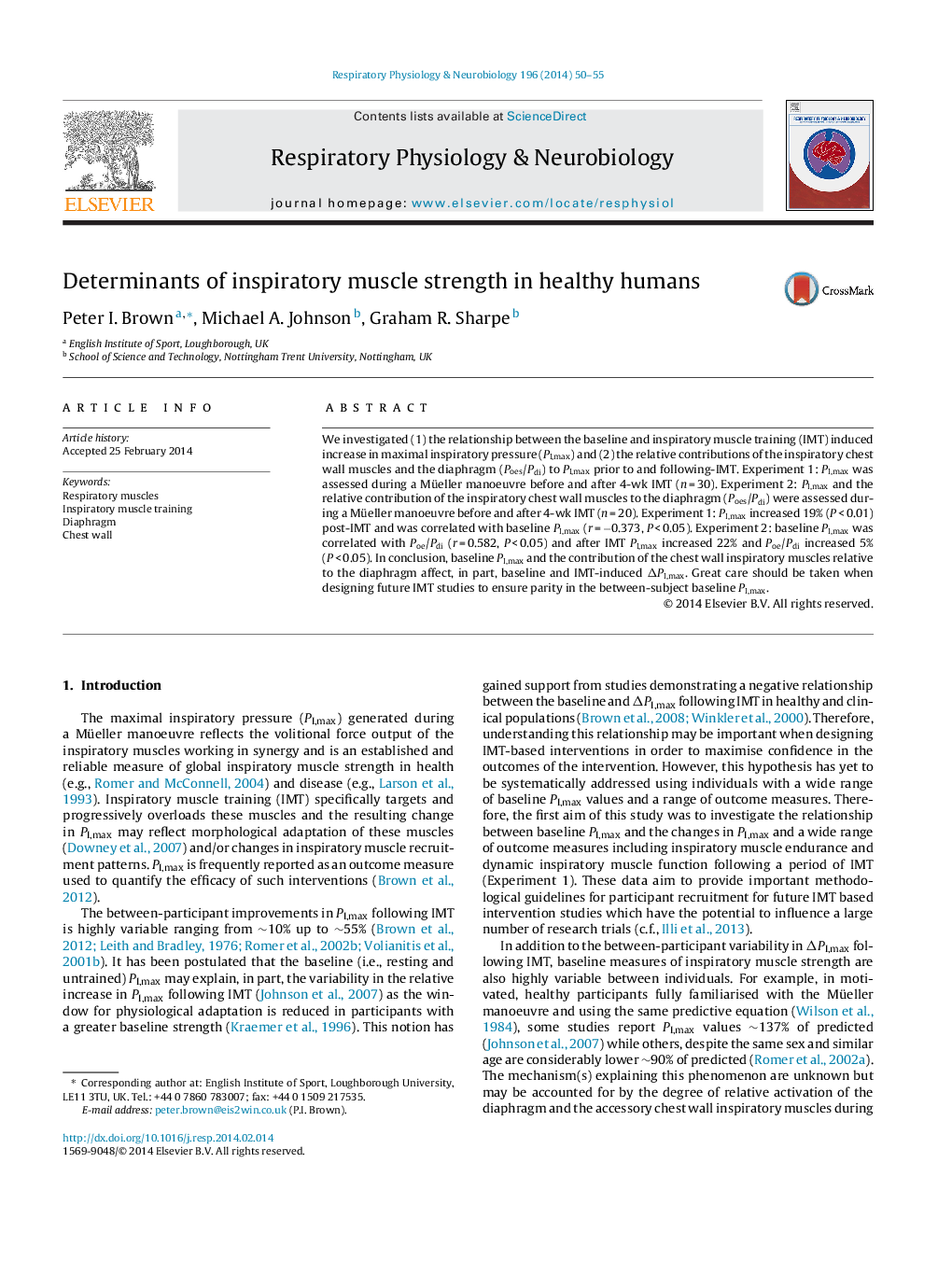| کد مقاله | کد نشریه | سال انتشار | مقاله انگلیسی | نسخه تمام متن |
|---|---|---|---|---|
| 2847025 | 1571332 | 2014 | 6 صفحه PDF | دانلود رایگان |
• Untrained, baseline PI,max determines in part the change in PI,max after IMT.
• All inspiratory muscles are targeted by IMT.
• Increased diaphragm may be due to greater chest wall strength.
• Inter-individual differences in PI,max must be controlled in IMT studies.
We investigated (1) the relationship between the baseline and inspiratory muscle training (IMT) induced increase in maximal inspiratory pressure (PI,max) and (2) the relative contributions of the inspiratory chest wall muscles and the diaphragm (Poes/Pdi) to PI,max prior to and following-IMT. Experiment 1: PI,max was assessed during a Müeller manoeuvre before and after 4-wk IMT (n = 30). Experiment 2: PI,max and the relative contribution of the inspiratory chest wall muscles to the diaphragm (Poes/Pdi) were assessed during a Müeller manoeuvre before and after 4-wk IMT (n = 20). Experiment 1: PI,max increased 19% (P < 0.01) post-IMT and was correlated with baseline PI,max (r = −0.373, P < 0.05). Experiment 2: baseline PI,max was correlated with Poe/Pdi (r = 0.582, P < 0.05) and after IMT PI,max increased 22% and Poe/Pdi increased 5% (P < 0.05). In conclusion, baseline PI,max and the contribution of the chest wall inspiratory muscles relative to the diaphragm affect, in part, baseline and IMT-induced ΔPI,max. Great care should be taken when designing future IMT studies to ensure parity in the between-subject baseline PI,max.
Journal: Respiratory Physiology & Neurobiology - Volume 196, 1 June 2014, Pages 50–55
